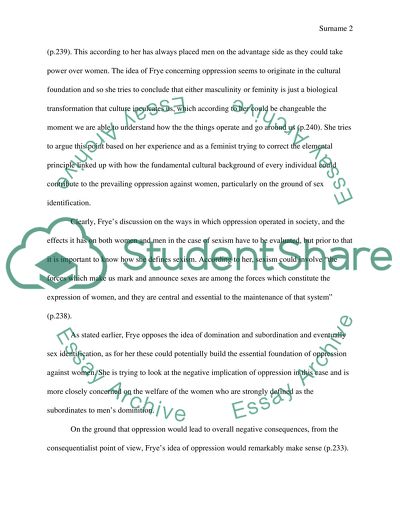Cite this document
(“Marilyn Frye on opression, racism and sexism Essay”, n.d.)
Retrieved from https://studentshare.org/philosophy/1467859-marilyn-frye-on-opression-racism-and-sexism
Retrieved from https://studentshare.org/philosophy/1467859-marilyn-frye-on-opression-racism-and-sexism
(Marilyn Frye on Opression, Racism and Sexism Essay)
https://studentshare.org/philosophy/1467859-marilyn-frye-on-opression-racism-and-sexism.
https://studentshare.org/philosophy/1467859-marilyn-frye-on-opression-racism-and-sexism.
“Marilyn Frye on Opression, Racism and Sexism Essay”, n.d. https://studentshare.org/philosophy/1467859-marilyn-frye-on-opression-racism-and-sexism.


